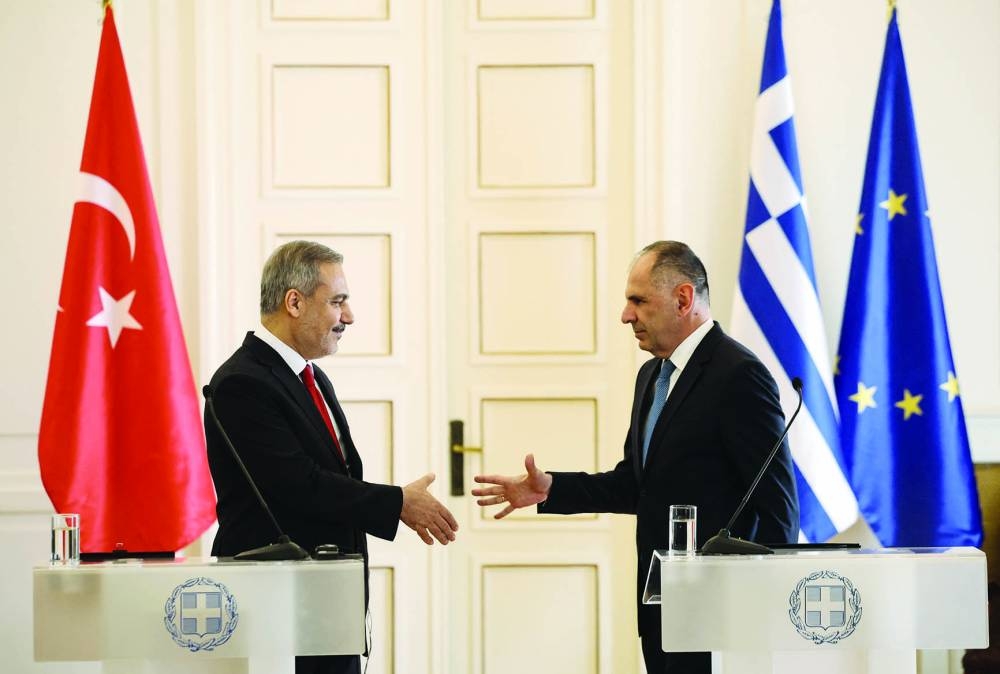The foreign ministers of Greece and Turkiye yesterday agreed to continue improving their relations to boost trade and seek common ground on how to resolve their longstanding territorial differences.
“We confirmed our will to maintain the (positive) climate we have managed to build,” Greek Foreign Minister George Gerapetritis said.
“I believe that we can resolve our differences with our neighbour Greece with mutual respect and on the basis of international law,” added his visiting counterpart Hakan Fidan.
Last December, Greece and Turkiye restarted high-level talks to reduce tensions when Turkish President Recep Tayyip Erdogan visited Athens for the first time in six years. The visit came after a long period of tension marked by disputes over migration, energy exploration in the Aegean and territorial sovereignty.
Erdogan had earlier questioned century-old treaties and even threatened to invade Greek Aegean islands.
The tension prompted Prime Minister Kyriakos Mitsotakis in 2021 to announce a military buildup in naval and air force equipment, and sign defensive agreements with France and the US.
But relations improved after Greece sent rescuers and aid to Turkiye after a massive earthquake killed at least 50,000 people in February 2023.
Gerapetritis yesterday said there we “tangible results” in the rapprochement, with progress made on increasing bilateral trade to $10bn (9.3bn euros). “What is important is that our contacts have acquired normalcy,” he said.
The trade volume was $8bn last year and could exceed $6bn this year, Fidan said.
Turkiye’s questioning of the status quo in the Aegean, which Greece says is based on 20th century postwar treaties, are a key obstacle in relations.
Turkiye has said that Greece unfairly regards the entire Aegean as a Greek sea, in disregard of its own rights as a coastal state.
Athens says its only dispute with Ankara is over where to delimit the continental shelf - the stretch of seabed close to its shores - and exclusive economic zones.
Gerapetritis said the talks yesterday had touched on how to begin to discuss the seabed and economic zone issues.

Turkish Foreign Minister Hakan Fidan and Greek Foreign Minister George Gerapetritis shake hands at the ministry of foreign affairs in Athens, Greece, yesterday.
